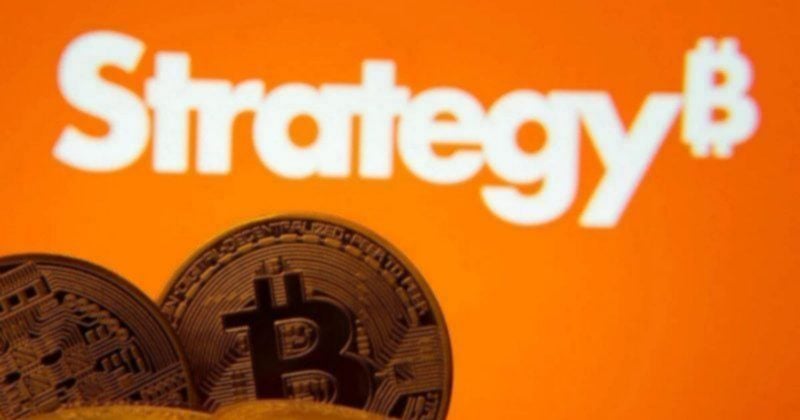Data has become the lifeblood of modern institutions. Banks need it to detect fraud networks. Law enforcement agencies require it to track criminal activity across borders. Healthcare systems depend on it to develop treatments and improve patient care. Yet across all these sectors, the most valuable data remains locked away, trapped behind regulatory compliance and privacy concerns.
The tools to handle this sensitive information are woefully inadequate. Organisations face an impossible choice: share data and risk breaches and penalties, or keep it siloed and miss insights that could save lives or prevent crimes. Traditional approaches like anonymisation strip away useful details, while aggregation loses the granularity required for real analysis.
Enter Roseman Labs, an Utrecht-based startup tackling this challenge with technology that sounds paradoxical: computing on data you can’t see.
Regulatory Hurdle
When Roderick Rodenburg co-founded Roseman Labs in 2019 with Toon Segers and Niek J. Bouman, they identified a clear problem: sensitive data had become trapped. From privacy concerns, regulatory risks, to lack of trust between institutions, there were a lot of reasons why organisations didn’t willingly share critical information, even knowing that collaboration could save lives.
“Everyone talks about ‘data sharing,’ but the reality is, organisations don’t share critical data because they simply can’t afford to compromise privacy or compliance,” Rodenburg says. The alternative wasn’t much better, either unsafe data exchange prone to leaks, or avoiding cooperation altogether.
This challenge manifests differently across sectors. In healthcare, GDPR regulations demand stringent protections for patient data, yet medical breakthroughs require researchers to analyse patterns across large, diverse patient populations. In law enforcement, investigators find warning signs of criminal activity scattered across agencies but can’t connect them in time, while in banking, fraud rings exploit the gap created by siloed datasets and lack of real-time information sharing between institutions.
Multi-Party Computation
Roseman Labs’ solution relies on Multi-Party Computation (MPC), a cryptographic technology that allows multiple organisations to run joint analyses on their combined data while keeping each party’s information completely encrypted. Think of it as a mathematical black box: encrypted data goes in from multiple sources, insights come out, but the raw data itself never leaves its original location and remains invisible to all parties.
“We provide a way for networks to compute joint insights on encrypted datasets without actually revealing underlying data,” Rodenburg explains. “This opens doors for collaborations people previously thought were impossible.”
The technology means that hospitals, research institutions, law enforcement agencies, and pharmaceutical companies can finally pool their data for analysis without any single entity seeing another’s private information.
The solution comes from the Roseman Labs team’s years of work in cryptography, while building on decades of academic research in the field of MPC. Whilst MPC technique itself had always been a secure model for joint data analysis, the real breakthrough was making the mathematics commercially viable for large datasets – turning encrypted computing from a resource-intense project, to a fast and high-performing engine.
“With Roseman Labs, organisations can collaborate on sensitive data while keeping it encrypted and fully compliant with GDPR,” says Rodenburg. “In practice, that means hospitals, research institutions, and other partners can gain insights across datasets they could never previously combine, without data leaving their control or revealing any personal information.”
Beyond Academic Theory

What sets Roseman Labs apart from other privacy-preserving technologies isn’t just the underlying cryptography, it’s making that technology actually usable. While competing approaches like Federated Learning or Homomorphic Encryption exist, Rodenburg argues they come with significant tradeoffs.
“Techniques like Federated Learning and Homomorphic Encryption either risk data leaking, or are computationally heavy and less flexible for complex, large-scale analytics,” he notes. “We’re productising encrypted computing in a way that’s developer-friendly and enables fast results, which is no small feat in a field dominated by academic prototypes.”
The company’s platform is designed for real-world deployment at scale, not just proof-of-concept demonstrations in research papers. That practical focus has attracted attention beyond healthcare. The Dutch startup works across sectors including national security, and anti-financial crime – where organisations need to collaborate on sensitive data and where security is non-negotiable.
Addressing National Security and Financial Crime
While Roseman Labs works across multiple sectors, two areas have emerged as particularly critical: national security and anti-financial crime.
In the national security domain, the company works with agencies like the Dutch National Cyber Security Centre (NCSC), which has connected over 100 organisations to enable near-real-time ransomware signal sharing across critical infrastructure partners. Previously, each entity held fragments of the bigger picture, but sharing sensitive threat data openly wasn’t an option. With Roseman Labs, the NCSC transformed fragmented alerts into a collective early-warning system.
“We are getting a full understanding in the form of a yearly overview of ransomware incidents in the Netherlands, and we are gaining insights into past and current research on advanced persistent threats,” says Claudia van den Beld, Project Coordinator at NCSC. The platform enables law enforcement and security organisations to identify cross-border crime patterns, shared modus operandi, and overlapping suspects, all while keeping their data private and under local control.
For vehicle theft, Roseman Labs works with VbV (responsible for tracking and recovering stolen vehicles in the Netherlands) to accelerate identification from days to minutes. By securely ingesting encrypted data, VbV can coordinate between insurers, law enforcement, and vehicle owners to speed up the hit rate for stolen vehicles, allowing stakeholders to act immediately in the critical first hours after a theft is reported.
In financial crime prevention, the stakes are equally high. Banks spend over $400 billion annually on compliance, investigations, and reporting, yet criminal networks remain faster and more sophisticated. The Netherlands-based startup enables banks to reduce false positive alerts, identify fraud rings using synthetic accounts, and share suspicious activity patterns across institutions—all without exposing customer data or violating GDPR.
“Organisations need solutions that don’t force a choice between privacy and progress,” Rodenburg explains. “Societal challenges that require better coordination in law enforcement, financial crime or healthcare are making it clear: to become future-proof, these organisations need insights urgently without making trade-offs on compliance.”
Scaling Up
The startup’s approach is clearly resonating. In September, Roseman Labs raised €5M in Series A funding, which the company plans to deploy toward geographic expansion, mainly Europe, the UK, Germany, and the Nordics. The 35-person team is focused on both commercial growth and continued research and development. But for a small team building complex cryptographic technology, infrastructure choices matter immensely. That’s where Amazon Web Services (AWS) comes in.
“We’re a small team, so keeping our infrastructure lean and manageable is really important to us,” Rodenburg explains. “At the same time, we have a multi-cloud strategy, which adds complexity.” The company relies on AWS’s managed Kubernetes service, EKS, to run their workloads reliably without spending excessive time on cluster maintenance. “That means we can stay focused on building and improving our platform, instead of just managing infrastructure.”
The choice of AWS wasn’t just about technical capabilities. For Roseman Labs, it was strategic on multiple fronts. The startup support through AWS credits and access to the AWS Marketplace ecosystem helped the company get started and scale quickly. Now listed on AWS Marketplace, Roseman Labs can streamline procurement for customers already operating in the AWS environment.

Perhaps more importantly, AWS allows Roseman Labs to meet customers where they already are. “Many of our clients, especially in regulated and data-sensitive sectors, run their infrastructure on AWS,” says Rodenburg. “So integrating closely with that environment helps us deliver faster, more scalable deployments without forcing them to change their setup.”
For a company whose entire value proposition centres on security and compliance, AWS’s global infrastructure provides the reliability and reach needed to extend encrypted computing capabilities while maintaining strict standards. “AWS gives us the ability to scale globally while maintaining strict security and compliance standards,” Rodenburg notes. “It lets us extend our encrypted computing capabilities efficiently, leveraging AWS’s reliability and reach while keeping full control over our own security model and cryptographic architecture.”
As the company continues to invest in R&D, making their encrypted computing engine even more accessible for data scientists and engineers, AWS’s managed services enable them to maintain their multi-cloud approach without the operational burden.
Rethinking Data Ownership
For Rodenburg, success isn’t just measured in funding rounds or customer acquisitions. It’s about fundamentally changing how organisations think about their data.
“Immediate success for us is getting people and organisations to realise they can do more with their data than they ever thought possible,” he reflects. “It’s really amazing to see the switch when people understand that they can use their data safely and responsibly to tackle the big societal problems they’re working on.”
Looking ahead five years, Rodenburg envisions Roseman Labs becoming what he calls “the privacy engine for encrypted computing embedded across sectors.” The company enables organisations to develop solutions that span from addressing the ransomware attack landscape to accelerating stolen vehicle recovery, from detecting child abuse patterns across hospitals to identifying money laundering networks across banks.
The ultimate vision is philosophical as much as technological: redefining data not as something organisations hoard and protect, but as a resource, they can deploy responsibly for collective benefit. In sectors where that collective benefit could mean stopping criminal networks, preventing cyberattacks, or saving vulnerable children, the stakes couldn’t be higher.
As privacy regulations tighten and cyber threats grow more sophisticated, Roseman Labs’ approach represents a way forward for organisations beyond the impossible choice – neither sacrificing privacy for progress nor accepting that sensitive data must remain siloed and underutilized. For an industry built on the principle of “first, do no harm,” that balance might finally make large-scale data collaboration possible.























